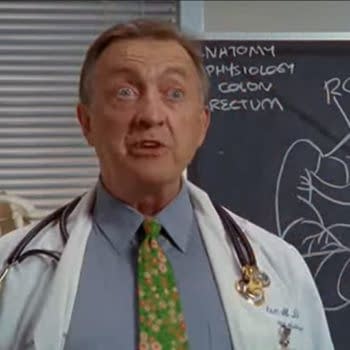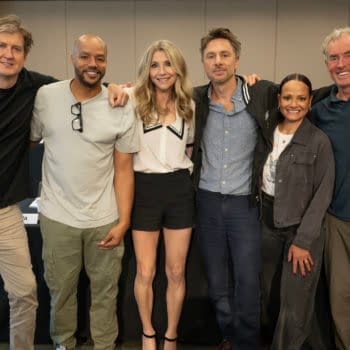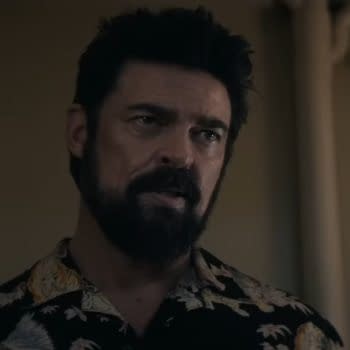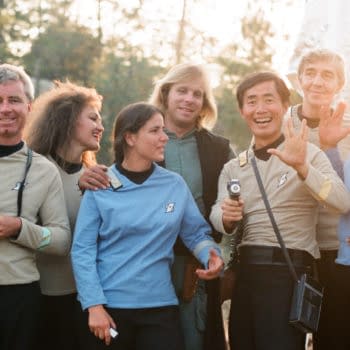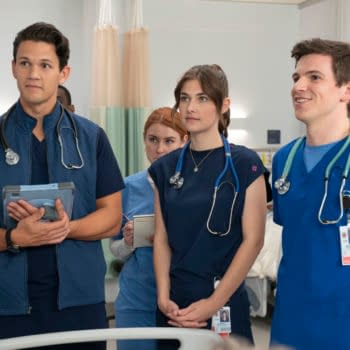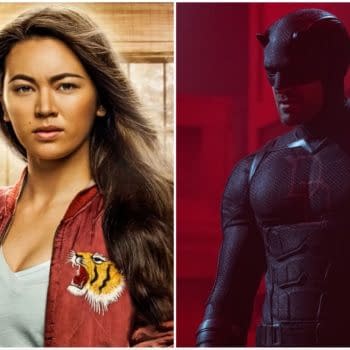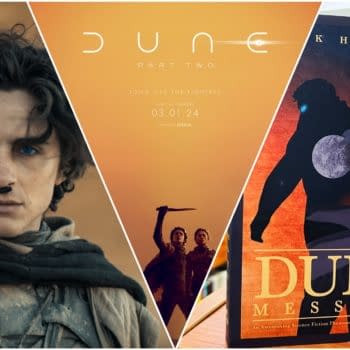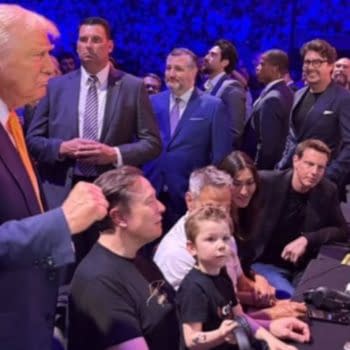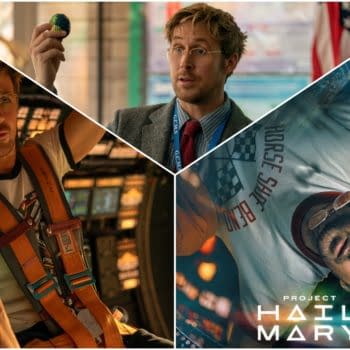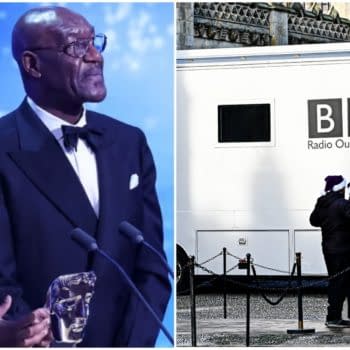Posted in: Horror, Lionsgate, Movies | Tagged: Damien Lewis, Euros Lyn, exclusive, interview, kelly macdonald, lionsgate, sophia di martino, The Radleys, vampires
The Radleys Director Euros Lyn on Suburban Vampire Black Comedy
Director Euros Lyn (Doctor Who, Heartstopper) spoke to Bleeding Cool about his latest supernatural black comedy "The Radleys" for Lionsgate.
Article Summary
- Euros Lyn's The Radleys turns suburban life into a black comedy with a vampire twist.
- The film explores themes of addiction, secrecy, and family dynamics through its unique vampire lens.
- Damien Lewis and Kelly Macdonald lead a strong ensemble cast in the dramatic comedy.
- Filming challenges included practical effects to create authentic blood-filled scenes.
Euros Lyn is one of the more accomplished UK directors over the past quarter century with the bulk of his work in television. One of his biggest accomplishments, and also one of his earliest, was helping to conceptualize the modern revival of Doctor Who with stars Christopher Eccleston, David Tennant, and Matt Smith during their time playing The Doctor in 12 episodes across five seasons and nine episodes of the spinoff Torchwood. He's also worked on other major franchises like Sherlock, Black Mirror, Broadchurch, Gracepoint, Netflix's Daredevil and Heartstopper, and HBO's His Dark Materials.
Lyn spoke to Bleeding Cool about his third film, the Lionsgate supernatural black comedy in The Radleys, based on the novel by Matt Haig, adapting the script with Talia Stevenson and Jo Brand, casting, and practical effects. The film follows a seemingly average suburban family with a juicy secret: they are vampires. In the light of day, the Radleys might seem normal, but they can only abstain from their natural cravings for so long until the bloody truth bubbles to the surface and turns their quiet country life upside down.
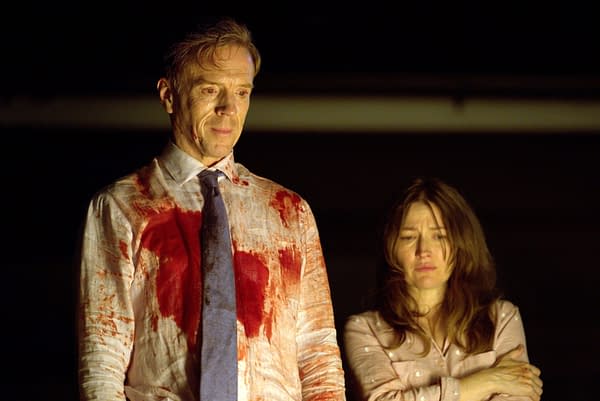
The Radleys Director Euros Lyn on Adapting Matt Haig's Novel to the Screen and Portraying Vampires in Suburbia
Bleeding Cool: What intrigued you about 'The Radleys?'
I hadn't read the novel the film is based on until the script landed on my desk. The thing that most excited me was, "How can you use the vampire genre to explore something I've never seen on screen before, which is addiction?" It's a story about an ordinary family who are dealing with an addiction to blood, and to fit into society, they decide to stop drinking blood and abstain. The parents make that decision, but it ends up a terrible decision not to tell the truth to the kids. When the kids find out what they are, terrible chaos ensues, and that's what appealed to and excited me about this film.
It goes into my next question about how Matt Haig's book resonated with you and with Talitha Stevenson and Jo Brand adapted it to screen. Was there any consideration of making this into a series instead?
We never discussed making it in the series. We always wanted to make a single film, which felt like a singular story with a beginning, middle, and end. Our characters go on a journey; it feels epic and cinematic. We've chosen these incredible locations on the northeast coast of England with some sweeping, epic vistas of Whitby, which itself is a term closely connected with vampirism.
I've worked with Talitha on the script for about two years, refining it and getting it to where it needed to be. I hope we've honored some of the things Matt was interested in exploring in his novel. He was dealing with some of the issues we've explored in the film, such as not drinking blood. Lots of this comes from his experience. Talitha, the writer, is also a psychotherapist who works with addicts, so she could bring a lot of her knowledge of people who've struggled with addiction into this movie.
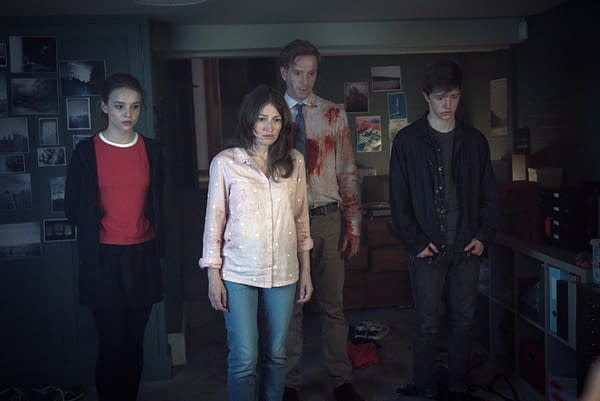
How did casting come about for the actors who played the family members, like Damien Lewis, Kelly Macdonald, Bo Bragason, and Harry Baxendale, and how did they develop their chemistry?
I'd worked with Damien before in a movie, and I wanted somebody because he plays twin brothers, Peter and Will. Peter's the good brother who's decided to give up blood, and Will's the bad brother who drinks blood like there's no tomorrow. What Damien has is this goodness, charm, and warmth in abundance. He's such a nice guy, but he's also got real mischief, and there's something of a rascal about him. I knew [Damien] could bring those qualities to both these characters, who make different moral choices, as well as the intelligence and complexity to create something dramatically exciting.
I'd never worked with Kelly before. I sent her the script, and she read it. She loves vampire movies and has always wanted to be in a vampire movie, but nobody's ever sent her one before. We had a chat, and I persuaded her to come along. I'm so glad because we know her from movies like 'No Country for Old Men' (2007), where you see emotional intensity, and the place she goes to is so moving and heartbreaking. We haven't seen so much of her do in her career in comedy, and she's hilarious. Her comedy pitch is perfectly placed, and this is a black comedy with some droll. We wanted to look at the comedic aspects of being a vampire in suburbia, and she found that.
Can you discuss how the rest of the cast, including Sophia Di Martino, Steven Waddington, Jay Lycurgo, and Shaun Parkes, came together and what they brought to the production?
This is an ensemble film, and we look at how our family fits in with the wider society, and we've got a fantastic cast. We've got Sophia, who's playing the neighbor, Lorna Felts, and Steven Waddington, who plays her husband, Mark Felt. Having a great cast in depth makes you care about everybody. Every single character in the film does something to show how you feel about the story. Sophia plays a neighbor who's desperately unhappy in her marriage and falls for the wrong guy. The vampire runs to his doctor's surgery, and he's desperate to bite her neck. There's comedy in that scenario.
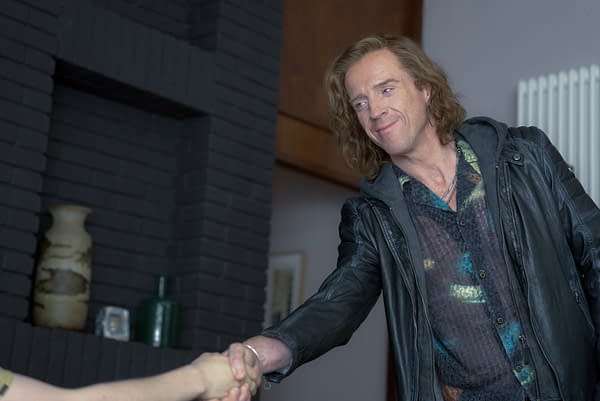
What was the most challenging aspect of production or most difficult scene to film?
There's a scene in which Will and Helen (Macdonald) are in the car, and without spoiling it, something happens, and there is a blood explosion that goes over the windshield. The technicalities of shooting a scene with practical effects of blood exploding in places where you need small explosives to set the blood off in a car is not the easiest set to clean up afterward, especially with actors near those explosives is tough. When we approached making the film, we wanted to keep as many of the effects practical as we could. There's something about dripping blood when it's real; there's something more tangible about it than VFX blood. That was a direction we were keen to explore.
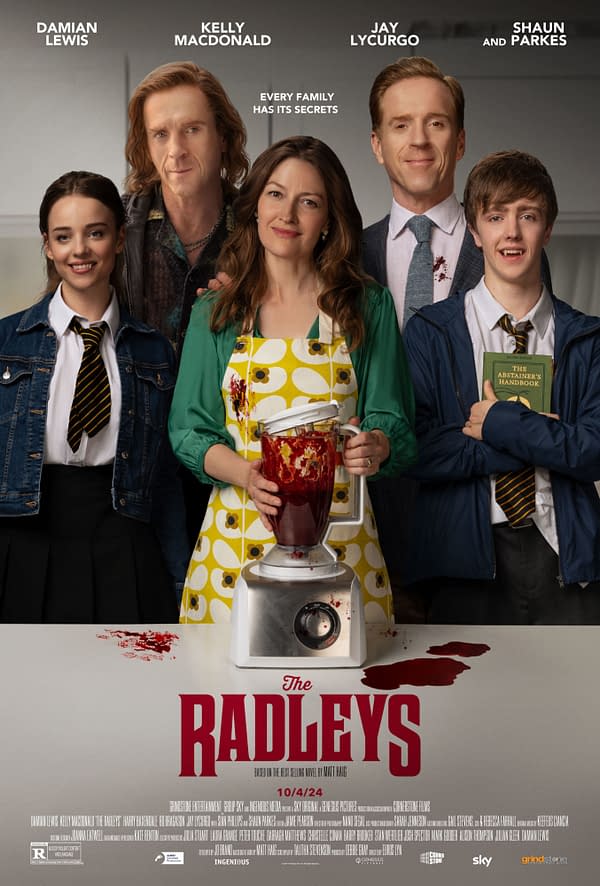
The Radleys is available in theaters, digital, and on-demand.






